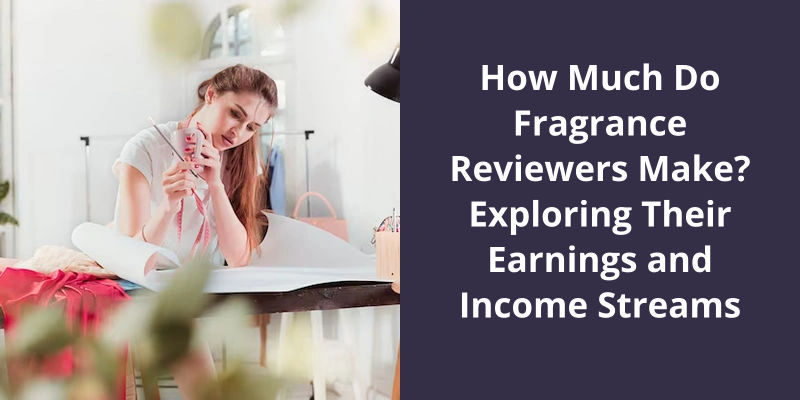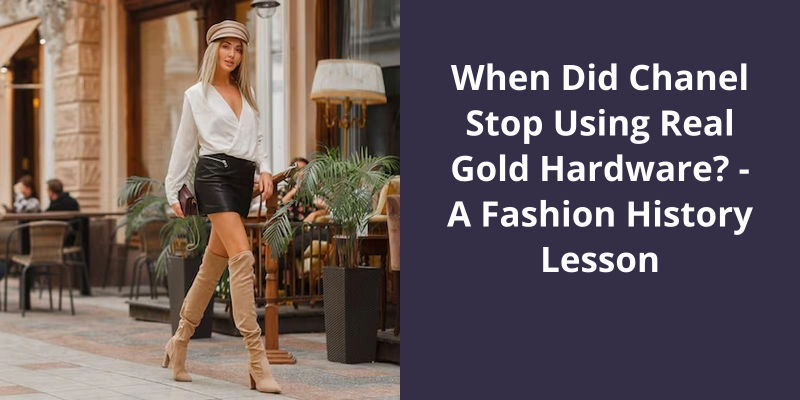The earnings of fragrance reviewers can vary widely, largely depending on their platform, audience size, and monetization strategies. Some reviewers leveraged by a strong social media presence or popular YouTube channel might earn a comfortable income due to sponsorships, advertisements, and partnership deals. Others might earn less, especially if they just started or do it part-time. It’s also common for reviewers to receive free perfume samples, which could be considered a form of income. While specific figures are hard to define without exact details, it’s safe to say that a successful fragrance reviewer can make anything from a modest supplement to their income to a substantial full-time wage.

What Is the Salary of a Fragrance Evaluator?
Fragrance is a major industry that generates billions of dollars annually. The role of a fragrance evaluator is to evaluate and analyze fragrances to ensure that they meet the desired quality standards. Fragrances are used in a wide range of products, including perfumes, colognes, body sprays, and household cleaners. They can be made from natural or synthetic ingredients and are designed to produce a specific scent.
Many factors determine the salary of a fragrance evaluator. Such factors include geographical location, level of education, level of experience, and employer. The average salary of a fragrance evaluator in Brooklyn, New York, is $51,643 per year.
Top earners in this profession can make over $93,910 per year. These professionals typically have extensive experience in the industry and hold advanced degrees in chemistry or a related field. Professionals in this group have proven expertise in fragrance evaluation and have worked in the industry for several years.
Professionals with advanced degrees and extensive experience in the industry earn higher salaries than those who’re just starting their careers. They help to create scents that are pleasant and safe for use in various products.
What Are the Specific Duties and Responsibilities of a Fragrance Evaluator?
- Analyze fragrance samples and provide feedback to fragrances developers
- Create detailed reports of fragrance evaluations for use by fragrance development teams
- Keep up-to-date with industry trends and innovations in fragrance development
- Collaborate with marketing and sales teams to ensure fragrances meet customer expectations and demand
- Attend and participate in fragrance training and education sessions to improve fragrance evaluation skills
- Follow safety regulations and guidelines when handling fragrance materials
- Communicate effectively with the fragrance development team to ensure fragrances meet all necessary standards and requirements
- Document all evaluation results accurately and keep detailed records for future reference
- Provide input and recommendations for improving fragrance quality and performance
- Assist in the development of new fragrance products by evaluating and providing feedback on prototypes
The salary of a fragrance designer can vary greatly depending on the location, company, and expertise of the individual. In Houston, TX, fragrance designers earn an average annual salary of $52,520, with the top earners making close to $96,000 per year. While the lower end of the salary range starts at $30,045, the 75th percentile earns over $71,000 annually. However, salary isn’t the only factor that should be considered when pursuing a career as a fragrance designer.
How Much Does a Fragrance Designer Make?
Fragrance designers are an integral part of the perfume industry, responsible for creating the scents that captivate and entice consumers. While the job of a fragrance designer may be glamorous, it’s also highly skilled and specialized. The salary of a fragrance designer is dependent on a multitude of factors, including the location of their employment, level of experience, and the brand they work for.
In Houston, TX, the average annual salary for a fragrance designer is $52,520, with top earners making upwards of $95,951 per year. Those in the 75th percentile can expect to earn around $71,237 annually. Conversely, those in the 25th percentile make around $30,045 per year.
Larger, more well-established brands generally offer higher salaries than smaller, independent companies. However, working for a smaller company can offer it’s own unique benefits, such as more creative freedom and the ability to work on a wider range of projects.
Someone who’s just starting out in the industry is likely to earn less than someone who’s been working as a fragrance designer for many years. Additionally, furthering ones education and training can also lead to higher salaries and more job opportunities.
Larger cities with higher costs of living generally offer higher salaries to offset these expenses.
These may include performance-based bonuses, profit sharing, health benefits, and retirement savings plans. The specific benefits offered can vary greatly depending on the company and the individuals job responsibilities.
While the path to becoming a fragrance designer can be competitive and challenging, the rewards of working in this exciting industry can be truly fulfilling.
How to Become a Fragrance Designer: Education and Training Requirements, Necessary Skills, and Job Outlook
To become a fragrance designer, you typically need a background in chemistry or a related field, as well as specialized training in fragrance development. You should have a strong sense of smell and an ability to identify and differentiate between scents, along with creativity, attention to detail, and a passion for fragrance. Job prospects for fragrance designers can vary depending on the industry and location, but there’s generally a demand for skilled and knowledgeable individuals in this field.
The work of a fragrance evaluator, also known as a ‘nose’, is essential in the creation of perfumes. They assist perfumers in making the fragrance more appealing and suitable for the consumers. In this article, we will delve into the various aspects of what a fragrance evaluator does and the skills required to become one.
What Does a Fragrance Evaluator Do?
As an evaluator, their primary objective is to ensure that the fragrance meets the desired quality and characteristics that the client requires. They possess extensive knowledge of the ingredients used in perfume production and can recognize even the slightest variation in fragrance notes. A fine fragrance evaluator is tasked with enlisting their olfactory senses to provide feedback to the perfumer on different scents that need to be adjusted to achieve the desired scent.
They work in a laboratory environment, testing various scents and notes of fragrances using a highly developed sense of smell. They’re responsible for identifying and correcting flaws in the fragrance and ensuring that the final product is of the highest quality possible. A lot of what they do is subjective, but they bring a skilled understanding of scent and fragrance.
Fine fragrance evaluating is an art that requires both technical and creative skills. They need to have a deep understanding of how different scents work together and how the chemistry of fragrance plays out over time in perfume.
Mentorship is essential in this field as young evaluators learn how to develop their sense of smell and technical knowledge to create a high-level career. They work in a team environment, and training and learning are continuous throughout their career. They must also keep up with new advancements in fragrance development technology and the ever-changing rules and regulations surrounding various scent compounds. These regulations and ongoing product development put the fine fragrance evaluator at the forefront of the industry to ensure the consumer is protected and always receives a fantastic product.
The Training and Education Requirements for Becoming a Fragrance Evaluator
- A high school diploma or equivalent is typically required.
- A bachelor’s degree in chemistry, biochemistry, or a related field is preferred.
- Additional coursework in fragrance chemistry, sensory science, and evaluation techniques is beneficial.
- Experience in the fragrance industry, such as working in a fragrance lab or as a perfumer’s assistant, is highly valued.
- On-the-job training and mentorship from experienced fragrance evaluators is essential.
- Continuing education and staying up-to-date on industry trends and advancements is important for career growth.
The fragrance industry is a highly specialized field that requires a unique set of skills and expertise. A fragrance expert, also known as a perfumer or a “nose,” is someone who’s trained in the art of creating scent compositions. With acute olfactory perception, these individuals are capable of identifying and manipulating various essences to produce complex and alluring fragrances. Let’s take a closer look at what it takes to become a successful fragrance expert and make a name in the world of perfumery.
What Is a Fragrance Expert?
These experts have a knack for crafting scents that captivate and intrigue, using a wide range of ingredients and techniques to deliver a finished product that’s both unique and alluring. They often work with high-end fragrance houses or designer brands, helping to create signature scents that embody the characteristics of their brand or clientele.
Fragrance experts typically spend years perfecting their craft, studying the science of aromas and developing a deep understanding of the way scent molecules interact with our senses. They use this knowledge to design fragrances that not only smell great but also evoke specific emotions and memories in those who wear them.
As any fragrance lover knows, evaluating a scent goes far beyond simply taking a whiff and making a snap judgment. A perfumer’s assessment involves a deeper dive into the intricacies of the scent, including it’s purity, blend, complexity, and how it evolves over time. While some fragrances are praised for their ability to morph and change, others are revered for their steadfast simplicity. In this article, we’ll take a closer look at the various factors that go into evaluating a fragrance.
How Do You Evaluate Fragrances?
As a perfumer, evaluating fragrances is a critical step in the creation process. It involves a deep understanding of scent profile and how different notes interact with each other. When evaluating a fragrance, one thing that I assess is how pure it smells. This refers to how accurately the scent is replicated from it’s original source. A good fragrance shouldn’t smell synthetic or artificial but rather capture the pure essence of it’s main ingredient.
Another important aspect that I consider is how well the notes blend together. This is essential in creating a balanced and harmonious fragrance. A well-blended fragrance shouldn’t emphasize one note over the others, but rather create a seamless scent profile that evolves over time.
The complexity of a note is also a crucial factor when evaluating a fragrance. Some scents may have several layers or nuanced aromas, while others may be simpler. A complex fragrance can be rewarding, but it requires a lot of skill and expertise to create a perfect balance between the different notes. On the other hand, a simple fragrance can be just as impactful if it’s executed well.
When evaluating a singular note in a fragrance, I look at how well it works when used alone. Some fragrances may use a single note as the focal point, and it’s crucial that the note is captivating and able to stand on it’s own.
The evolution of a fragrance over time is also something that I assess. A good fragrance should have a pleasant and natural progression from it’s initial application to the final dry-down. The change in the fragrance should also be intentional and well-executed. Some fragrances stand out because they don’t change over time, and that can be a good thing if thats the desired effect.
The Role of Personal Preferences in Evaluating Fragrances
- Individual preferences affect the evaluation of fragrances.
- Factors that influence preferences include personal taste, culture, memory, and experience.
- Some people may prefer floral scents, while others may prefer woody or musky scents.
- The same fragrance can smell different on different people due to differences in body chemistry.
- Personal preferences can also change over time.
- Marketers often target specific demographics with fragrances based on their preferences.
- Ultimately, the evaluation of fragrances is subjective and based on individual preferences.
Source: How To Assess Perfume Quality? Pairfum London
Conclusion
In conclusion, the fragrance industry continues to thrive as consumers seek to enhance their personal appeal through the artful use of scents. Fragrance reviewers play a crucial role in this industry by providing insights into the nuances and effectiveness of various fragrances. As such, becoming a fragrance reviewer can be a lucrative career choice for those with a keen sense of smell and a passion for sharing their knowledge of fragrances.





